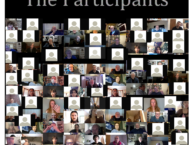Clark University Peace Studies Program Workshops, Spring 2014
Saturdays 12:30 to 4 p.m.
Seven-Part Workshop Series on Essential Peacebuilding Skills
Learn to equip yourself with the expertise and experience necessary to effectively engage in peacebuilding and conflict resolution! Each workshop will focus on an essential skill related to nonviolent peacebuilding. Field practitioners from peace organizations will design the workshops to be practical and participatory. Participants who complete all seven workshops will be awarded certificates. Those interested should inform the Director of Peace Studies as soon as possible. Each workshop will run from 12:30 to 4:00.
- Interpersonal Conflict Resolution and Mediation
- Presenter: Michael Langa; February 22, Grace Conference Room
- Mediation is a key skill for those who are interested in working for peaceful change. This workshop will teach participants the skills necessary to transform relationships so that basic needs can be met and conflicting parties can cooperate to discover common interests.
- Personal Transformation
- Presenter: Joe de Rivera; March 15 , JC001
- How can we deal with the gap between our ideals and the reality of who we actually are? How can we manage aggression in ourselves and others so we encourage life instead of violence? This workshop considers ways to conduct non-violent personal defense, assertion, helping, and political work.
- Using Privilege: Allying for Justice
- Presenter: Grace Ross; March 22, Lurie Conference Room
- If we examine our lives in the context of many systems of power and domination, all of us have a certain amount of privilege (perhaps as college students at a liberal arts college), and all of us have faced different forms of discrimination (as children, for example). How can we use the privileges we do have to more effectively build social change movements for social justice? How can we build effective anti-oppression (anti-racist/anti-classist/anti-sexist, etc.) organizations, campaigns, and coalitions?
- Nonviolent Direct Action Training – An Introduction
- Presenter: Sam Diener; March 29, JC001
- We’ll analyze some of the history and strategies of nonviolent direct action, discuss what’s involved in organizing and participating in nonviolent direct action, practice making decisions in 10 person-or-so affinity groups, and practice nonviolent direct action skills.
- Building Organization, Forging Coalitions, Sustaining Movements
- Presenter: Suren Moodliar; April 5, JEFF222
- Most peace work is financed by grants. This workshop will teach participants how to write proposals that will secure funding for their projects. It will focus on how to navigate the world of grant procurement and the key sections of successful proposals that demonstrate the project’s excellence to prove they merit strong consideration.
- Social Change: Fundraising for Nonprofits
- Presenter: Christa Drew; April 12, JEFF222
- Volunteer energy is often the lifeblood of social change organizations, but money is fuel that makes it possible for organizations to recruit staff with expertise, invest in relationship building and strategic planning, facilitate meaningful public events (from forums to civil disobedience actions), and publicize the good work. How can we ethically, effectively, and sustainably raise money through appeals, fundraising events, grant writing, and developing fee-for-service programs and services?
- Expressing Ourselves, Envisioning Better Futures: Writing for Social Change
- Presenter: Esther Jones; April 29, JC001
- This workshop explores the diverse types of writing styles and methods that have generated demonstrable societal interventions and effected notable social change within the societies in which they were produced. From the novel in Kenya, to the journalistic exposé of contemporary U.S., to the “twitterizing” of Middle Eastern revolutions, learn what has made certain writings effective producers of real social change and how you might adapt these strategies and skills to contemporary social issues.
Participating in Peace Studies Events for course credit
Peace Studies concentrators and self-designed majors may receive course credit for their participation in the workshop series with the advance approval of Jude Fernando, Director of Peace Studies. To receive a half-course credit, students must register for PSTD 299 with the program director, and complete all seven peace-building workshops. To receive a full course credit, students must fulfill the requirements for a half-course credit, complete a research paper, and present at Academic Spree Day on a topic relating to peace.
For more information on the events listed above, please contact one of the Peace Studies core faculty: Jude Fernando, Director of Peace Studies, at JFernando@clarku.edu or ext. 8859, Johanna Vollhardt at JVollhardt@clarku.edu or ext. 7278, or Kristen Williams at KWilliams@clarku.edu or ext. 7446.





